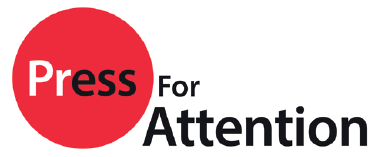
Cartoon by emraharikan – see more here
Here’s a scenario I have seen unfold in front of me with many a regional and local business journalist – in fact, it happened twice in the space of 2 hours this week so I thought I’d blog about it today…note that it happened as I sat catching up with the journalist…
Mobile rings. Journalist answers and moves away from PR chap – this could be sensitive info after all.
Journalist confirms name and publication…twice. Journalist listens. Journalist politely informs Arabella/Tarquin from SW1 PR that no, Cambridge is not in the East Midlands and no, neither is Hull. “Nearly East Midlands” or “sort of your patch” doesn’t make it relevant unless perhaps there is a local case study? There isn’t. PR thanks journalist and sends press release anyway to “tick the regional box” for client report.
PR is about relevance and news. Unfortunately, many larger, particularly “national” PR agencies rely too much on mammoth databases rather than personal connections to keep in touch/send the odd email to journalists. After all, the Midlands is quite a strut from London and there’s no tube line to Nottingham!
The best PRs know their sector/niche and know which journalist writes what, about whom and for which audience. Whisper it but they may even have met one in real life…more than once.
They also know what is happening in the sector/locality outside of the publication they are targeting – in the case of regional publications such as the one I was chatting with, we’re talking politics and economics. Who is doing well, worse or better? What are the factors behind this and what are the angles that they and their client can then perhaps hang a relevant story on?
Armed with these facts, they can plan and execute campaigns that have relevance to their target media. They are in constant contact with the journalists because they have a portfolio of clients in the same sector/niche. As a result, the switched on PR gets wind of opportunities all the time, rather than when a database query flags something up.
The journalist is also more likely to work with them as an ongoing partner, versus the buyer/vendor dynamic of the odd phone call or email, often prevalent when a national agency has to get back in touch with a regional publication.
PR is about relationships – clients with their readership and PR representatives with key journalists. If you like, it is about knowing your chardonnays from your Bombardiers.
One final note, I asked the journalist in question about this story 10 minutes ago. He just replied. Turns out it was Ipswich, not Cambridge. Oh well, close enough eh?
ends
